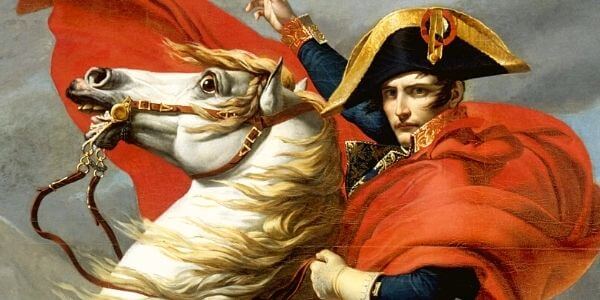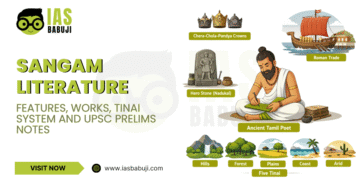To begin, we’ve concentrated on Napoleon Bonaparte in this article. Let us learn everything we can about Napoleon Bonaparte, such as who he was and what he did. Napoleon’s Rise, Napoleon Bonaparte’s height, and spouse. One of the most important ideas for the IAS exam is this. Candidates preparing for the Civil Services exams would find this article quite useful. As part of the UPSC exam, one must be familiar with Napoleon Bonaparte. So let’s get started.
Who was Napoleon Bonaparte?
On August 15, 1768, Napoleon Bonaparte was born in Corsica, a Mediterranean island, to Carlo Bonaparte and Letizia Romalino Bonaparte. Napoleon’s family was poor, despite being members of the Corsican nobility.
Napoleon received his education on the continent of France, where he graduated from the military academy in 1785. He joined the French Army as a 2nd lieutenant in an artillery detachment. When the French Revolution broke out in 1789, he was on leave and became engaged with the Corsican chapter of the Jacobins, one of many pro-democratic parties in France at the time. At the time, the Bonaparte family was embroiled in a feud with the monarchy over their pro-democratic leanings, with the monarchy supporting the governor of Corsica. As a result, they fled Corsica for mainland France in 1793, where Napoleon resumed active military service.
Napoleon met Augustine Robespierre, the younger brother of the notorious Maximilien Robespierre. Maximilien Robespierre would usher in the Reign of Terror, a time of disorder marked by violence against and execution of people seen to be adversaries of the French revolution.
However, due to his involvement with the Robespierre brothers, Napoleon was placed under house arrest for a brief period of time when they fell from power and were guillotined in July 1794. He was elevated to major general as a result of suppressing a monarchy-backed revolt against the revolutionary republic in 1795.
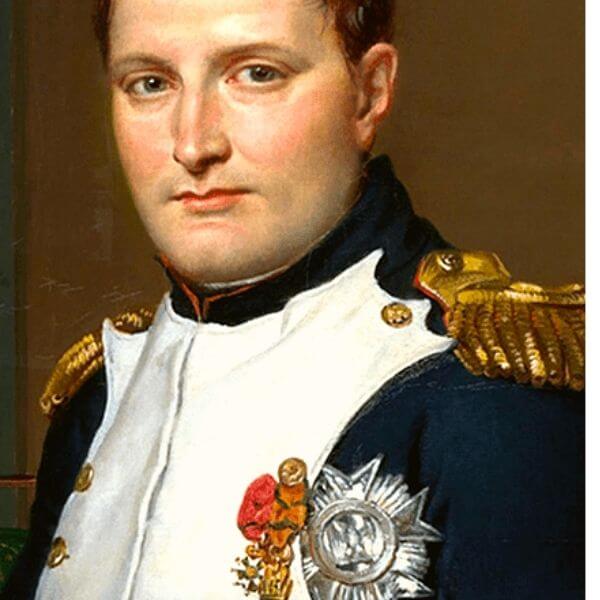
Rise of Napoleon Bonaparte
Rise of Napoleon Bonaparte: Since 1792, Napoleon has fought in the French revolutionary wars as well as against other European kingdoms.
Napoleon led the French Army to victory over Austria’s better-equipped and larger soldiers at the Treaty of Campo Formio in 1797. France gained territory as a result of the Treaty of Campo Formio, which was concluded between France and Austria.
He commanded a French attempt to take Egypt, which was then a British Protectorate, in the Battle of the Nile (1798). Despite winning the first battle of the pyramids, the French were defeated in the Battle of the Nile.
He also led an unsuccessful invasion of Syria, which was part of the Ottoman Empire, in 1798.
The Directory, a five-member group that administered France after the Reign of Terror ended in 1795, was overthrown in the coup of 18 Brumaire in 1799. Napoleon became a participant in the coup that ousted the director as the political situation deteriorated.
Napoleon led the French to a resounding victory against the Austrians at the Battle of Marengo in 1800. He became the 1st consul of the three-member group known as the consulate, which ruled France due to this victory.
This is the rise of Napoleon Bonaparte. To learn more about Indian Polity for UPSC, go to the linked article – Indian Polity for UPSC – Indian Constitution Notes & PDF. Further, We shall also talk about Napoleon Bonaparte, Emperor of France, His height & spouse, as well as the fall.
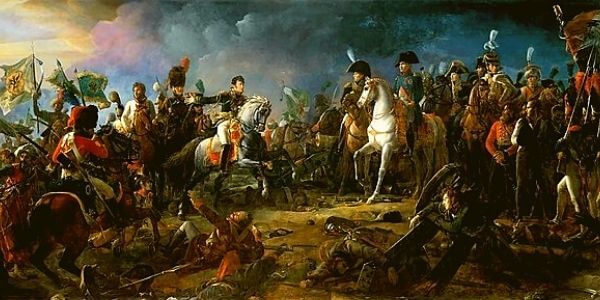
Emperor of France
Napoleon became the first consul for life in 1802 as a result of a constitutional reform, which effectively declared him a dictator. Later that year, in a lavish ceremony in the Notre Dame church, Louis crowned himself Emperor of France. The Napoleonic Wars (1803-1815) were a series of conflicts between France and a group of European nations. However, the peace Napoleon negotiated in 1802 was short-lived since, by 1803, Britain had re-entered the war with France, and Russia and Austria had joined them.
- Napoleon abandoned his ambitions to attack England after Britain’s naval triumph at Trafalgar. Instead, he focused on Austro-Russian forces, which he beat at the Battle of Austerlitz later that year in one of his finest victories.
- In order to overcome his British adversaries through economic reasons, Napoleon devised the Continental System in 1806, which effectively blocked British trade from European ports. Subsequent successes further enhanced napoleon’s reputation as a brilliant general over Russian and Austrian forces.
- In the years that followed, Napoleon gained fresh lands, giving him control of most of Europe. Napoleon’s relatives and loyalists were named as reigning monarchs in Italy, Naples, Spain, Sweden, and the Confederation of the Rhine, Napoleon’s newly established provinces.
Click the link to learn more about the UPSC Examination 2022
Fall of Napoleon Bonaparte
- The French Revolution attempted to overthrow the monarchy, and Napoleon was a key figure in the process. However, when he eventually declared himself Emperor of France, the public became suspicious of his actions. He designed a Continental strategy to blockade British trade, but it was ineffective and ultimately backfired.
- During the Napoleonic Wars, the Peninsular War (1807–1814) pitted a coalition of Spain, the United Kingdom, and Portugal against invading and occupying French armies for control of the Iberian Peninsula. Here, Napoleon was defeated.
- Invasion of Russia: Napoleon wanted to use proxies to force Tsar Alexander I of Russia to stop trading with British merchants in order to force the United Kingdom to sue for peace. The campaign’s avowed political goal was to free Poland from Russia’s menace.
- Following the disastrous invasion of Russia in 1812, the immense French dominion quickly crumbled. Napoleon’s attempt to conquer Russia in 1812 was thwarted by a number of factors, including bad logistics, poor discipline, sickness, and, not least, the weather.
- Napoleon was defeated in 1814 and exiled to the island of Elba, but he eventually returned and was beaten at Waterloo in 1815. while His wife and son were transported to Austria.
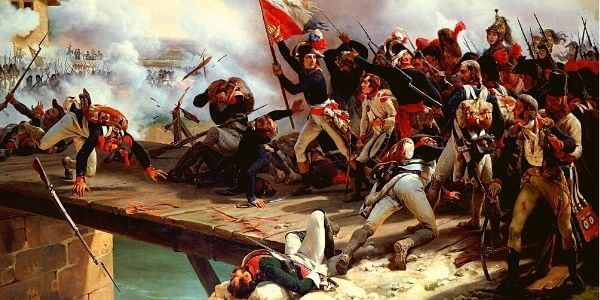
Personal Life
Let us Find out about Napoleon Bonaparte’s height and spouse. At the age of 26, he married Josephine, a 32-year widow, yet he eventually canceled the marriage due to the lack of children. He later married Marie-Louise, the emperor of Austria’s 18-year-old daughter. She gave birth to a boy the following year. Napoleon II (who would later become King of Rome). Napoleon Bonaparte was of normal height, but his military methods may have earned him the nickname “Short Napoleon.” He stood 1.68m tall (5.5″ height in feet). He, it seems, wanted to be surrounded by tall troops, and these members of his personal guard made him appear short-statured in comparison.
- The British kept Napoleon on the Atlantic Ocean island of Saint Helena, 1,870 kilometers (1,162 miles) off the west coast of Africa.
- To prevent any escape from the island, they sent a small garrison of soldiers to both Saint Helena and the desolate Ascension Island, which lay between St. Helena and Europe.
- He died on May 5, 1821, while he was there at the age of 51.
- His death was attributed to stomach cancer, yet he was also claimed to be poisoned.
- His ultimate wish was to be buried on the banks of the Seine, but he was instead buried on the island.

Conclusion- Napoleon Bonaparte
Napoleon Bonaparte is the subject of the article. We’ve included all of the essential information on Napoleon Bonaparte, including who he was and what he accomplished. Napoleon Bonaparte’s rise, Fall, Height, and Spouse. Napoleon had a number of wars that he had won with tremendous acclaim. However, his quest for leadership contributed to his demise in 1815, when he was defeated at Waterloo.
FAQ- Napoleon Bonaparte
In 1796, he led France to victory against Austria in a series of conflicts. After 1799, he was the first consul of the consulate that administered France. In 1804he was crowned Emperor of France. He drafted the Napoleonic Code, which is the foundation of France’s legal system today.
At the Battle of Marengo in June 1800, Napoleon’s Army defeated one of France’s long-time foes, the Austrians, & drove them out of Italy. This victory solidified Napoleon’s position as the first consul.
Napoleon’s weakened armies surrendered in 1814, and he offered to step aside in favor of his son. Instead, he surrendered and was exiled to Elba after this offer was rejected.
Editor’s Note | Napoleon Bonaparte
The article focuses on Napoleon Bonaparte. We’ve covered everything you need to know about Napoleon Bonaparte, including who he was and what he accomplished. Napoleon Bonaparte’s rise, fall, height, and spouse. This article is crucial for your UPSC preparation because it covers the topic of UPSC GS – I world history. As a result, we’ve included some useful links to assist you with your IAS exam preparations. To achieve the greatest exam results, it is necessary to cover all of the relevant topics. When you come upon a stumbling block, do not become discouraged. There is no such thing as a race without obstacles. The successful individual isn’t the one who hasn’t faced any challenges, but rather the one who has faced and overcome them. Good luck.

